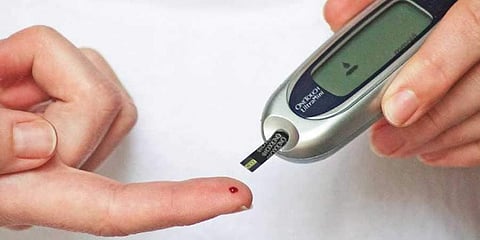

Children with poorly controlled type 1 diabetes have a 10 times higher risk of COVID-19-related complications and death compared to those with well-controlled diabetes, according to a study. The study was presented virtually at ENDO 2021, the Endocrine Society's annual meeting.
"This study shows keeping diabetic children's blood sugar under control is more important than ever during the pandemic," said lead author Manish Raisingani, M.D., of the University of Arkansas for Medical Sciences and Arkansas Children's in Little Rock, Ark. "The findings will help children with type 1 diabetes and their families make better choices about the safety of attending school in person and engaging in other in-person activities during this pandemic."
Some data suggest that adults with type 1 diabetes may have a higher risk of COVID-19 complications and death, but there has been limited research on children. Raisingani analyzed data on children under age 18, using an international database that collects real-time electronic medical records data. The researchers reviewed data on about 2,000 children with type 1 diabetes and COVID-19, as well as more than 300,000 children with COVID-19 who did not have type 1 diabetes.
The study analyzed haemoglobin A1c levels in children with diabetes. A1c is a simple blood test that measures a person's average blood sugar levels over the past three months. It is the main test to help people manage their diabetes. Higher A1c levels are linked to diabetes complications. The goal for most people with diabetes is an A1c level of 7 per cent or less.?
Raisingani found that in children with A1c levels higher than 9 per cent, the risk of COVID-19 complications was 10 times higher compared with children whose A1c levels were under 7 per cent, indicating well-controlled diabetes. Children with type 1 diabetes and COVID-19 were more likely to die, to require an endotracheal tube to help them breathe, to develop pneumonia, or to develop septic shock, compared with children who had COVID-19 and did not have type 1 diabetes.
"Many parents of children with type 1 diabetes are wondering if it's safe to send their child to school during the pandemic," Raisingani said. "Our findings indicate that if their A1c is high, it would be best to have them attend virtual school, but if it's 7% or under, their risk is similar to other children without type 1 diabetes."
